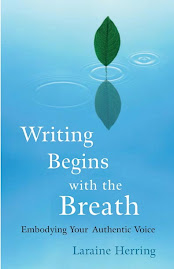Tuesday, November 10, 2009
The Lonesome Road of Revision
'Tis the season for revisions. I just got all my edits back from Shambhala. My students are in the throes of revising their work. I adore revision, but most of the time, my classes do not. Yesterday, in my advanced fiction class, we did an in-class self-evaluation on their current revisions. (Yes, these revisions weren't really the final ones... psych!) After about an hour, we had a chat. I thought the conversation might be helpful for some of you.
Two primary questions came up.
How do you know when you're done?
This is as obscure as how do you know when you're in love (or out of love!) The answer is different for different people and different circumstances. You may be noticing that the longer you study writing the fewer "answers" there are to anything. You're not imagining it. To commit to the life of a writer, you have to be able to look at yourself with honesty and objectivity. You have to be able to discern when YOU'RE bored compared to when the story has run its course. No one can know that for you. You have to be vigilant with yourself so that you don't fall into patterns of laziness or "good enough". This is hard. I'll never tell you it isn't. That's why people take classes, find writer's groups, stay in school, etc -- we seem to need other people to help us keep growing.
Some stories are just learning tools. They won't blossom into anything, no matter how much you want it. Some stories do arrive in better shape than others (but I assure you, the more you practice, the better chance you have of this occurring). Each draft teaches craft. Each draft increases the level of sophistication of your thinking about a work.
You might think about this in terms of a story's question(s). When the story has exhausted its questions for you, it's time to shape it and start sending it out. As long as there are still significant questions for you, it's likely still time to work on it.
Writing takes time. The semester format is a false one. All you can do in a semester is stick your toe in. If any of you go on to graduate school, you'll spend most of your two years rewriting the same book. This isn't so much to get a great book, as much as it's to instill the length, depth, and breadth of a true revision process into the student. It's to teach the level of thinking and detachment required to really shape and sculpt a piece of writing. It takes a long time.
Only you can determine what is arrogance and laziness (it's good enough, it's better than X's, it's just fine, etc) and what is the end of the story's arc. In my experience, it's rare for a story to work in under a year. My books take 3-5 years apiece. And I work on them A LOT.
How do you keep showing up?
If I had the answer to this, I'd be rich. I just know that you show up if it matters to you, and you don't show up if it doesn't, and you're not a good person or a bad person regardless of which choice you make. Writer's block comes from you, not from the writing, so examine what might be going on inside yourself that is keeping you from showing up for the work. The answer is always there. Then, you can determine if it really is the right thing to do not to show up (sometimes life really does get in the way), or if you can kick yourself in the butt, laugh, and start again.
You will ask these questions your whole writing life. Every time you ask, the answer will change. Practice not attaching to needing to know everything. Practice listening with an open heart to the story, rather than to the director in your mind. Follow one word as it leads to the next. You aren't creating the path. You're following it. When that mindset shifts, a lot of opening can occur for people.
Revising is where the fun is. It's where you get to peel away what isn't your story. It's where you get to test out your knowledge of craft. It's where your curiosity gets to play and where your real reasons for writing the piece start to speak. Revising your work is not a sign of failure. It's proof of discipline, dedication, and perseverance, qualities without which you will not be a writer. It's proof of your stamina and courage, and above all else, it's proof that you respect your art.
Subscribe to:
Post Comments (Atom)












No comments:
Post a Comment